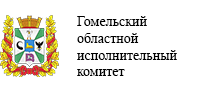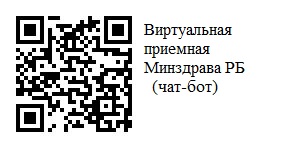Syndrome of professional burnout
Professional burnout is a syndrome that develops against the backdrop of chronic stress and leads to the exhaustion of the emotionally-energetic and personal resources of a working person. Professional burnout arises from the internal accumulation of negative emotions without appropriate "discharge" or "liberation" from them. In 1981, E. Moppoy (A. Morrow) offered a bright emotional image, reflecting, in his opinion, the internal state of an employee experiencing the distress of professional burnout: "The smell of burning psychological wiring."
Doctors-oncologists and average medical staff of oncology departments are people who are highly susceptible to this syndrome. The basis for such a conclusion is both the general reasons inherent in the emergence of "professional burnout" in all categories of workers, as well as specific features related to the nature of their activities.
Common reasons include:
- Intensive communication with different people, including negative attitudes;
- Work in a changing environment, clash with unpredictable circumstances;
- Peculiarities of life in megacities, in conditions of imposed communication and interaction with a large number of strangers in public places, lack of time and resources for special actions to improve one's own health.
For specific reasons, you can include:
- Problems of a professional nature (career growth) and working conditions (insufficient level of salaries, workplaces, lack of necessary equipment or preparations for the qualitative and successful performance of their work);
- The inability to help the patient in some cases;
- Higher lethality than in most other departments;
- The impact of patients and their loved ones seeking to solve their psychological problems by communicating with a doctor;
- The tendency of the last time is the threat of appeals of relatives of patients in the event of a lethal outcome with legal claims, claims, complaints.
Professional burnout less relates to people who have the experience of successfully overcoming professional stress and are able to constructively change under stressful conditions. He is also more steadfastly opposed by people who have high self-esteem and self-confidence, their abilities and capabilities. An important distinguishing feature of people who are resistant to professional burnout is their ability to form and maintain positive, optimistic attitudes and values in themselves, as well as other people and life in general.
According to N.V. Samoukina, a leading researcher at the Psychological Institute of the Russian Academy of Education, the symptoms that make up the syndrome of professional burnout can be divided into three groups: psychophysical, socio-psychological and behavioral.
The psychophysical symptoms of professional burnout include such things as:
- Feeling of constant, not passing fatigue, not only in the evenings, but also in the morning, immediately after sleep (a symptom of chronic fatigue);
- Feeling of emotional and physical exhaustion;
- Decrease in susceptibility and reactivity to changes in the external environment (lack of curiosity response to the factor of novelty or fear reaction to a dangerous situation);
- General asthenia (weakness, decreased activity and energy, worsening of blood biochemistry and hormonal parameters);
- Frequent causeless headaches; Permanent disorders of the gastrointestinal tract;
- A sharp loss or a sharp increase in weight;
- Complete or partial insomnia (fast falling asleep and lack of sleep in the early morning, beginning at 4 am or, conversely, inability to fall asleep at night until 2-3 am and "heavy" waking up in the morning when you need to get up for work);
- A constant inhibited, drowsy state and a desire to sleep throughout the day;
- Shortness of breath or breathing problems with physical or emotional stress;
- A marked decrease in external and internal sensory sensitivity: deterioration of sight, hearing, smell and touch, loss of internal, bodily sensations.
Socially-psychological symptoms of professional burnout include such unpleasant sensations and reactions as:
- Indifference, boredom, passivity and depression (reduced emotional tone, feeling depressed);
- Increased irritability to minor, minor events;
- Frequent nervous "failures" (flashes of unmotivated anger or refusals to communicate, "withdrawal into oneself");
- A constant experience of negative emotions for which there is no reason in the external situation (feelings of guilt, resentment, suspicion, shame, stiffness);
- A feeling of unconscious anxiety and heightened anxiety (feeling that "something is wrong");
- A feeling of hyperopia and a constant sense of fear that "it will not work" or the person "will not cope";
- General negative attitude towards life and professional perspectives (like "Whatever you try, it will not work anyway").
Behavioral symptoms of professional burnout include the following behaviors and behaviors:
- The feeling that work is becoming harder and harder, and it is becoming more and more difficult to carry out it;
- The employee noticeably changes his working schedule of the day (he comes to work early and leaves late or, on the contrary, comes to work late and leaves early);
- Regardless of the objective need, the employee constantly takes work home, but does not do it at home;
- The head refuses to make decisions, formulating various reasons for explaining himself and others;
- Feeling of uselessness, lack of faith in improvement, lower enthusiasm for work, indifference to results;
- Failure to fulfill important, priority tasks and "getting stuck" on small details, which does not meet the service requirements of spending most of the working time on little-realized or unintelligible execution of automatic and elementary actions.
If you notice these symptoms in yourself and your colleagues, you need to perform a number of actions that protect your psyche from the harmful effects of the syndrome.
First of all, you need rest.
Think about it yourself and explain it to your manager - without such an opportunity you will not be able to fully carry out your work.
Try to take consciously to the situation of the "border": after all, at this time you are crossing an invisible boundary between your private life and professional life. Try to realize this moment on the way to the service and again return to this thought, returning home. Tell yourself that work is not your whole life, and there you perform certain duties and solve important tasks, but when leaving work, you should not carry with you in your soul all the burden of the same problems.
During the working day, the following factors may increase the efficiency of work:
- Photos of close, memorable places, beautiful landscapes, which you do not just have to place in the workplace, but sometimes you can look at them for a few seconds, as if "leaving" for a more comfortable and pleasant environment;
- The opportunity during the working day at least 2 times to go out for 5-10 minutes to fresh air;
- The smell of citrus (it can be from a sachet or another flavor, or maybe just from a mandarin, an orange or a glass of juice that you have not forgotten to hire);
- Reception of the "white sheet": sit down, close your eyes and imagine a white sheet on which nothing is written, try to keep this picture as long as you can without thinking or imagining other images;
- Deep breathing, during which, for a few seconds before a new breath, you delay the next movement of the muscles (it is better if you breathe with your "belly").
Also important in the prevention of burnout syndrome have the following methods:
- Use of "time-outs", which is necessary to ensure mental and physical well-being (rest from work);
- Definition of short-term and long-term goals (this not only provides feedback indicating that the person is on the right track, but also increases long-term motivation, achieving short-term goals is a success that increases the degree of self-education);
- Mastering the skills and skills of self-regulation (relaxation, ideomotor acts, definition of goals and positive internal speech contribute to reducing the level of stress leading to burnout);
- Professional development and self-improvement (one of the ways to prevent burnout syndrome is the exchange of professional information with colleagues, which gives a feeling of a wider world than the one that exists within a separate collective, for this there are different ways - courses of improvement of professional skill, conferences, etc.). ;
- Avoiding unnecessary competition (there are situations when it can not be avoided, but excessive desire to win causes anxiety, makes a person aggressive, which contributes to the emergence of burnout syndrome);
- Emotional communication (when a person analyzes his feelings and shares them with others, the probability of burnout is significantly reduced or this process is not so pronounced), except it is important to have friends from other professional spheres in order to be able to distract from their work;
- Maintaining a good physical shape (do not forget that there is a close relationship between body and mind: poor nutrition, abuse of alcohol, tobacco exacerbate the symptoms of burnout syndrome).
These methods help to remove the momentary tension, the general psychological background of your attitude is in many respects connected for the doctor-oncologist with his philosophical attitude to life, understanding what a person can - and what can not change.
Of course, each situation is unique, and a sense of stress, fatigue, dissatisfaction with oneself and their work is based on a unique set of problems that are unique to each person.
Source: www.oncology.ru.



















